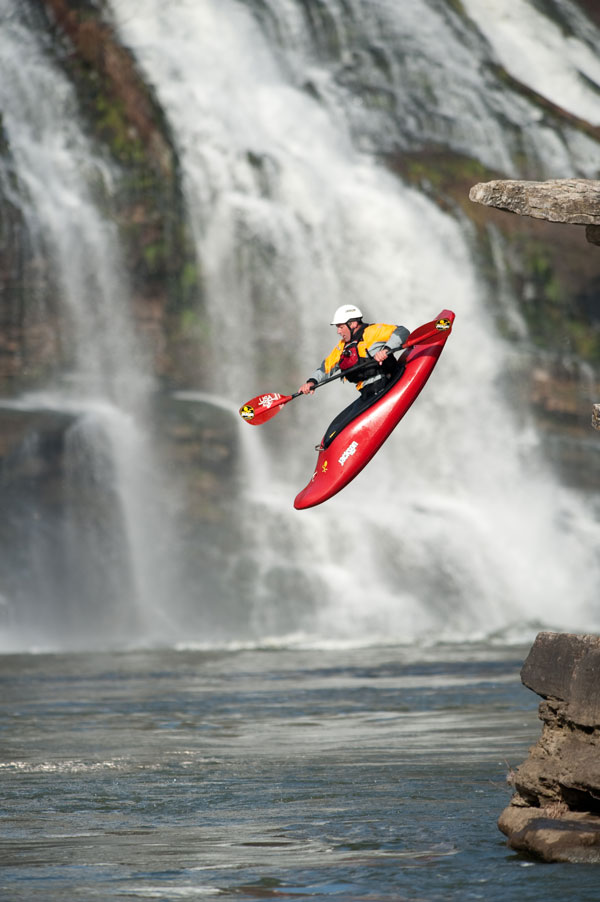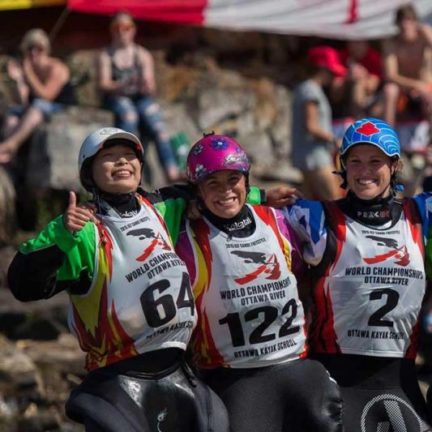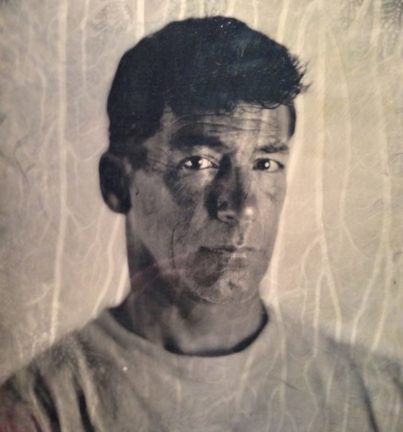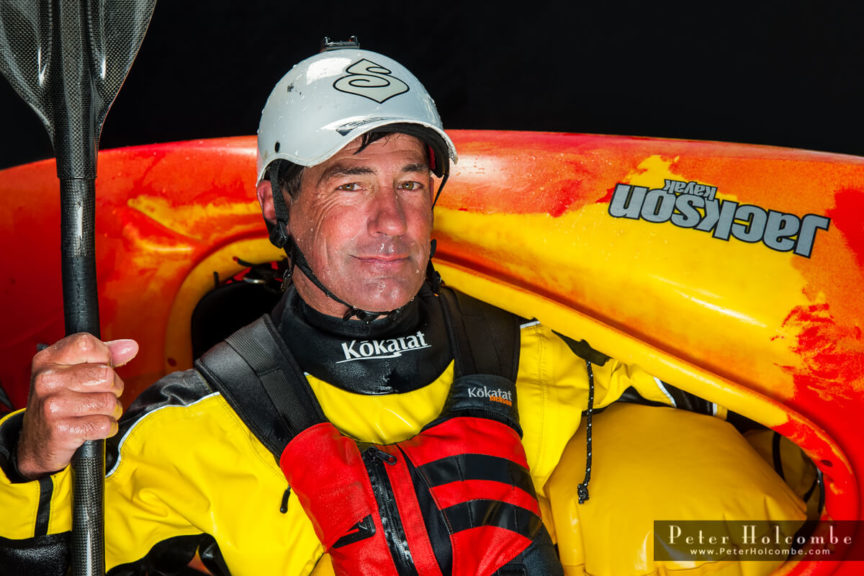Eric Jackson is a four-time world champion who has dominated the whitewater kayaking scene for the past three decades. Despite the challenges of hearing loss, he spent 26 years on the U.S. Kayak Team (1989-2015) winning on an international level. In 2017, well into his 40s and now at 57, he qualified for the U.S. Team. At the age of 6, Eric got hooked on kayaking and credits swimmer Mark Spitz for igniting the fire in him to be an Olympic competitor. Today, Eric is a sports nut, husband, father, coach, and entrepreneur intent on redefining aging.

 Eric’s daughter Emily is among the next generation of kayakers who are benefiting from his coaching and expertise. He shared she had an undefeated season last year. “She’s an amazing athlete … And, at the age of 32, with two kids, she won the national championships eight years ago,” he offered in the podcast. Here’s a sneak peek of some of Eric’s life-changing perspectives including how his wife’s statement, “Are you sure you can’t find a way to kayak a little more?” lead to his thriving watercraft business.
Eric’s daughter Emily is among the next generation of kayakers who are benefiting from his coaching and expertise. He shared she had an undefeated season last year. “She’s an amazing athlete … And, at the age of 32, with two kids, she won the national championships eight years ago,” he offered in the podcast. Here’s a sneak peek of some of Eric’s life-changing perspectives including how his wife’s statement, “Are you sure you can’t find a way to kayak a little more?” lead to his thriving watercraft business.
(To put this in perspective, during our podcast recording, see link below, Eric shared his love of the Caney Fork River, which is adjacent to his home. He confided, “The river’s running at 11,000 cubic feet per second… It’s a high-volume river. It’s got freestyle kayaking. It has waterfalls. It has class V whitewater rapids … and by the way, my hair is still wet from paddling, I just got off the water.”)
Q. You lost your hearing at a young age, how has that impacted your life?
A. I had scarlet fever as a kid and I was totally deaf for some period, like about a month… I have about 70 percent hearing loss in both ears.
If I’m one on one, I learn to communicate. Looking at other people, especially people who lose their hearing later in age, it’s a real problem because they as a kid didn’t learn it… They become uncomfortable in conversation because they’re missing things. Then people kind of make fun of them a little bit or harass them because, oh, you can’t hear or listen or whatever. Then they just tune out and then stop communicating. They it’s easier just to go watch TV or go do something out else. They jump out of the conversation. That’s what I’m seeing with older people that lose hearing. It’s a real sad thing to watch because it’s easier to not engage with people that they really care about, than it is to fix it, the problem. Hearing aids have a bad rap because they really weren’t very good for a long time. I’d say as of 2020, 2021 for the first time in history, the technology of hearing aids is at a level that it’s almost like you just have good hearing again… My hearing aids are connected to my phone.
He went on to say, “Don’t let somebody talk you out of checking them out because it (hearing aid technology) is like night and day.”
Q. You’re famous for a number of reasons because of your kayaking. When did you decide, you were going to make that your sport of choice?
 A. In 1972 at age of eight, I watched Mark Spitz win seven gold medals in the Munich Olympics for swimming. I decided I wanted to go to the Olympics, and I wanted to do that. I became a swimmer … but I was also whitewater kayaking. I got as far as like a national champion and a New England champion in butterfly for swimming, but the kayaking really, really was something that it was more fun than swimming. Like swimming, you’re head down, and you just follow the black line till you get to a “T” and then you turn around and go the other way and you just do it over and over and over again. Where kayaking, you’re out this beautiful liquid conveyor belt in the valley, seeing all these cool places. When I realized that there was a U.S. Team for whitewater kayaking, which was in, I think 1982 or 83 — when I realized that existed — I immediately changed my emphasis from becoming an Olympic swimmer to an Olympic kayaker.
A. In 1972 at age of eight, I watched Mark Spitz win seven gold medals in the Munich Olympics for swimming. I decided I wanted to go to the Olympics, and I wanted to do that. I became a swimmer … but I was also whitewater kayaking. I got as far as like a national champion and a New England champion in butterfly for swimming, but the kayaking really, really was something that it was more fun than swimming. Like swimming, you’re head down, and you just follow the black line till you get to a “T” and then you turn around and go the other way and you just do it over and over and over again. Where kayaking, you’re out this beautiful liquid conveyor belt in the valley, seeing all these cool places. When I realized that there was a U.S. Team for whitewater kayaking, which was in, I think 1982 or 83 — when I realized that existed — I immediately changed my emphasis from becoming an Olympic swimmer to an Olympic kayaker.
Q. Why do you think it’s so important to continue to strive for new heights and health benefits as you age?
A. I intend to live to at least… 120 was just the random number that I picked. Then my son-in-law told me about a 132-year-old… I’m like, what? 132? I didn’t know you could do that. I have to change my goals. If you follow somebody’s health, when you watch older people, when they get to the point between 50 and forward, you can take a piece of graph paper and you can pretty much extrapolate the graph to the day they’re going to die likely. That’s the way I look at it. As an individual … I want to be physically fit, mentally fit and be able to do the things I want to do way later in life. If I’m going to live to 120, well the last 20 years, I don’t want to be a vegetable that can’t walk around the house, right? I’m going to be a 100-year-old that’s banging out 100 pushups. I need to be running around and healthy otherwise, how am I going to live another 20 years.

Q. Do you do certain things that really you would say kind of stimulate your brain as well as an athlete?
A. I don’t even remember where it came from, but there’s a quote. I think it might have been Denis Waitley’s Psychology of Winning tapes that my dad gave me at age 18, so they’re really old … he has a program called Psychology of Winning. I’m pretty sure that’s where it came from. One of the lines in there is do you have just enough energy to get through the day…? Isn’t it amazing how you just get through the day and then you just crash and you’re tired? You ever wonder why? The amount of energy you have is how much energy you expect to have. What is it you haven’t accomplished, and you want to accomplish?
Learn more about Eric Jackson and how he is intent on breaking down stereotypes of aging; listen above.

 This Squeeze the Day is brought to you by the All of Us Research Program from the National Institutes of Health. Learn how you can help change the future of health by participating in the program.
This Squeeze the Day is brought to you by the All of Us Research Program from the National Institutes of Health. Learn how you can help change the future of health by participating in the program. 
